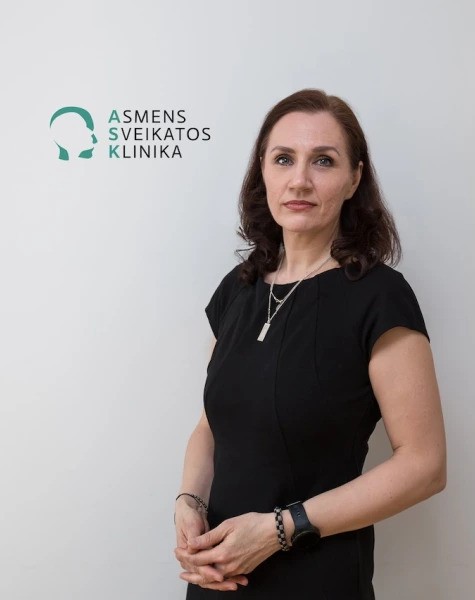The solution to conflicts with children is not the power struggle

Many reasons to get angry
Conflict is a normal part of the human relationship to the environment. “The fact that the conflict has arisen shows that things we disagree are very important to us and we are ready to defend them, sometimes very fiercely. The conflict ends when the disagreements are resolved, the differences are reconciled. In this case, both parties win, ”says Neringa Jurelienė, a medical psychologist at the Children's and Adolescent Children and Adolescents.
Parents' and children's conflicts in families are different, depending on the age of parents and children, beliefs and views. N. Jūlienė distinguishes between parental control and child autonomy as the most common source of conflict, with disagreements over boundaries, rules, friends, various activities, even friends.
Other reasons, according to the psychologist, household work, expectations of academic achievements, and lately, time to screens.
« Disagreements also arise from cultural differences where parents seek to convey traditional attitudes to their children, and the modern and acceptable modernity of their time, language manners, clothing style or behavior itself, » the psychologist observes.
Whether the conflict occurs depends on the ability of parents and children to regulate themselves. “Often, the collision of differences grows into a true power struggle, when the emotional atmosphere heats up, each side gets excited. Here, there is a risk not only to injure a relationship, but also to overwhelm each other emotionally or even physically, ”says the psychologist.
Neringa Jurelienė / Photo by Personal Archive
Incorrect solution models
Family members have to combine many things and obviously do not always succeed. It is important that the conflict does not become a place of measurement of power. “The fact that parents are older, more experienced and aware does not mean that they are always right. Children can experience strong feelings of anger and anger when parents are unable to confess, ”emphasizes N. Jūlienė.
According to her, dazzling anger, frustration, people lose their ability to express their thoughts clearly, assess the situation, respond to disagreement with screams, curses, threats or even physical violence. It becomes difficult for parents (perhaps even impossible) to recognize and respond to the emotional needs of the child before them.
“Strong emotions seem to disconnect our prefrontal (thoughtful) brain, which reduces empathy, understanding, and solutions to the problem. When the autonomous nervous system is involved, it is forgotten that this is just a domestic conflict, that in front – a beloved, perhaps just a pregnancy child, and accepts the opponent as a threat enemy, which is at least necessary to do harmless, ”explains the psychologist.
Criticization, nickname, devaluation, threats, contempt are not the weapons that should be used to solve the conflict constructively. Unfortunately, parents, and later children, often resort to it when they feel powerless as they conflict.
“Obviously, you would expect high self -regulation and maturity from your parents. Children, especially in adolescence, are very sensitive to parents from parents. Some insults, with conflicts, grow up and stay for a long time. Thus, sayings such as « milk from the lips do not dry » or « first » should not be used, « the psychologist emphasizes.
Empathy and understanding
According to N. Jūlienė, one of the greatest gifts that parents receive when they have children are the opportunity to create a particularly complementary relationship with them. Not only does a successful resolved conflict improves relationships, it also helps to get to know each other better, understand, gives more respect and confidence, and teaches children to solve conflict constructively.
When resolving conflicts in a constructive way, parents model an example of emotionally mature person.
The psychologist emphasizes that parents pay to participate in conflicts as effectively as possible, ie, children from disagreement space should take a message that conflict is not the end of the world or relationship with their parents, but only for a decision that is acceptable to both sides. They must be sure that conflict does not eliminate the love of their parents and pose a threat.
Parents are the main models and teachers, how to conflict: with respect for the other side, regulating the emotions inside, expressing their opinions, arguments and not blaming, not criticizing the other side. Even during the conflict, the child can hear that he is loved when the parent's argument sounds not as a threat, not as a statement of power, but as a concern, an attempt to better understand.
« It is easier to say than to do, » the psychologist admits, but emphasizes that there is something to try. She recommends that Marshall Rosenberg's developed practice, which emphasizes empathy, understanding and collaboration in conflict and communication. In the event of a conflict, parents should not criticize, stick labels first, but simply to clear what they hear and see.
The psychologist gives some examples. Instead of saying « you are so lazy / disadvantage / irresponsible, » parents could say, « I see that unclean dishes / scattered items. » Instead of a forged child, parents should just tell him how they feel (for example, saying, « You get angry with me, » it should be said, « It's sad that this is what happened, even angry »). The space of the conflict should become a place where you can tell your needs (« I am not able to do everything, so I hope for help »). Finally, parents should be able to ask for something specific, not to demand from their child simply obedience (« please wash the dishes », not « now go and swim! »).
Parents – the first teachers
According to N. Jūlienė, numerous studies have been conducted in an attempt to reveal the consequences facing the children of conflicting parents. Frequent conflicts between parents have been found to be associated with low self -esteem, increased anxiety, emotional insecurity, tendency to isolate, and experience depressive state.
Parents are the first child teachers and examples of how the couple can agree with each other. There is a good chance that the observed parental connection model will also apply to children in their relationship with the second half.
“Moreover, when they see the example of their parents, children are learning how to resolve conflicts. Destructive, violent, disrespectful solutions to parents' conflicts become the first automatic choice of a child when he is in a similar situation, ”says N. Ja Ja Ja Jalesienė. In addition, the child receives a message that any disagreement needs to be resolved in conflict – this is how the development of his social skills suffers.
The psychologist notes that the results of the research show that parents' conflicts are not an absolute verdict for children. Most children growing up in conflicting families do not develop emotional or behavioral problems. According to scientists, this is because there are other factors that reduce or increase the risk of the above problems.
N. Jūlienė emphasizes that when forecasting possible consequences, it is important whether parents' conflicts are common, intense, or whether they are resolved at all and whether the child is involved. Worst of all, if you have witnessed your parents' disagreement, the child falls into a conflict of loyalty when he is forced to choose which side he / she supports.
In addition, intensive parental involvement in conflicts does not leave space to meet the child's needs. « Does it not happen that the child, by trying to overcome the tension he is experiencing, anxiety about parents' strife, or even taking the initiative to apply parents, misses his or her personal development tasks? » – notes the psychologist.
Influence on child development
The emotional development of a child is a process where the child learns to recognize, understand, express and regulate his emotions. When he matures emotionally, he also acquires the ability to build and maintain relationships, understand the feelings of another, and solve social and emotional challenges.
The psychologist says that when deciding constructively, parents model an example of emotionally mature person. Such a person tries to understand his opponent, listens actively, speaks respectfully, seeks not to crush / accuse / insult another, but simply to solve the problem.
“What can the conflict process help the child? That the conflict is not scary that it does not threaten love or friendship; that it is possible to express your opinion / feelings / needs and not be punished / underestimated for it; that in conflict it is possible to regulate yourself: to express how you feel, make a pause, inspire; that it is important to see the perspective of another (to be empathetic), ”says N. Ja Ja Ja Jaselienė.








